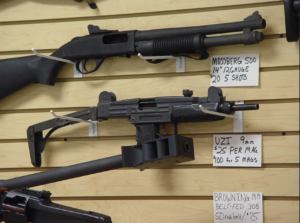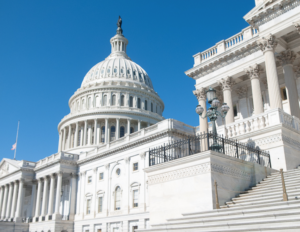Gun Laws in America: A Change Needs to Occur


The Las Vegas mass shooting—the worst mass shooting in recent American history—has incited much controversy on the topic of gun control in the United States. Indeed the event has reignited debate across the nation as to whether it is finally time to change the laws that regulate American ownership of firearms.
According to the Economist, fifty-five percent of the American population believe that gun laws should be “more strict,” with eleven percent of the individuals surveyed believing they should be “less strict,” and thirty-three percent believing that the laws should remain the same. However policy makers have not been catalyzed to change any of the current laws, even in light of this recent tragedy. So far, there have been 282 mass shootings—shooting incidents that have killed or injured four or more people—in the US in 2017 alone. These events have resulted in the deaths of 282 people and wounding of 1,334. There have also been 32 school shootings that took place in 2017. Despite this needless bloodshed, the federal government has seemingly not been incentivized to tighten the existing gun laws.
As per the BBC, The National Rifle Association (NRA) boasted that their membership increased to around five million individuals following the Sandy Hook school shooting. Lobby groups such as the NRA thrive on the Second Amendment: the right of the citizen “to bear arms.” The NRA’s influence is built on the fact that gun owners have a greater tendency to support congressmen that share their same view on guns.
If one were to consider this contentious topic in a theoretical vacuum and to eliminate any partisanship, it is possible to see that, given the current state of legislation regarding firearms, mass shooting incidents are just going to be a part of life. Citizens will have to accept the fact that, at a moment’s notice, dozens of people will lose their lives. Daily life, sadly, is therefore somewhat like a lottery system. The inaction of policymakers is actually ensuring that more citizens will surrender their lives to this fate.

The need for stricter gun laws is evident. There government’s stagnancy and deliberation are harmful to its citizens. Rather than spending energy in mourning and prayer, politicians should commit themselves to actually changing the laws in order to prevent mass shootings from occurring in the future. Firearms, if used in a responsible manner, do not themselves present an issue. The ease with which citizens can obtain guns, however, certainly does.
Furthermore, American President Donald Trump has so far done four things to loosen gun laws in the United States. Firstly, the Executive signed a bill on February 28th, 2017 that makes it easier for those with mental health conditions to access and purchase firearms. Additionally, the administration has also narrowed the term “fugitive” by allowing people with outstanding arrest warrants to purchase guns. Now, the purchase of guns can only be blocked for fugitives who have fled the state where their arrest warrant was issued. The Trump administration has also expanded hunting grounds to include more national parks and public lands. Lastly, a bill which seeks to ease restrictions on the purchasing gun silencers as well as the ability for Americans to carry concealed firearms across state borders is due to be presented before the House of Representatives by the end of this fall.
Supporters of this legislation argue that easing an individual’s access to guns can actually help to prevent mass shootings as more people will be equipped to counter a threat if they should find themselves under attack. More firearms can be equated with greater self-protection as people will have equipment at their disposal that they can employ to protect themselves from a dangerous individual. However, there is no sound data available that supports this assertion.
At the end of the day, a change is required in the current gun laws so that access to firearms can be made more difficult. Ultimately, reducing the number of guns in the hands of individuals decreases the likelihood that mass shootings will occur, thus ensuring that everyday public activities remain safe for Americans to enjoy.
Edited by Kathryn Schmidt
